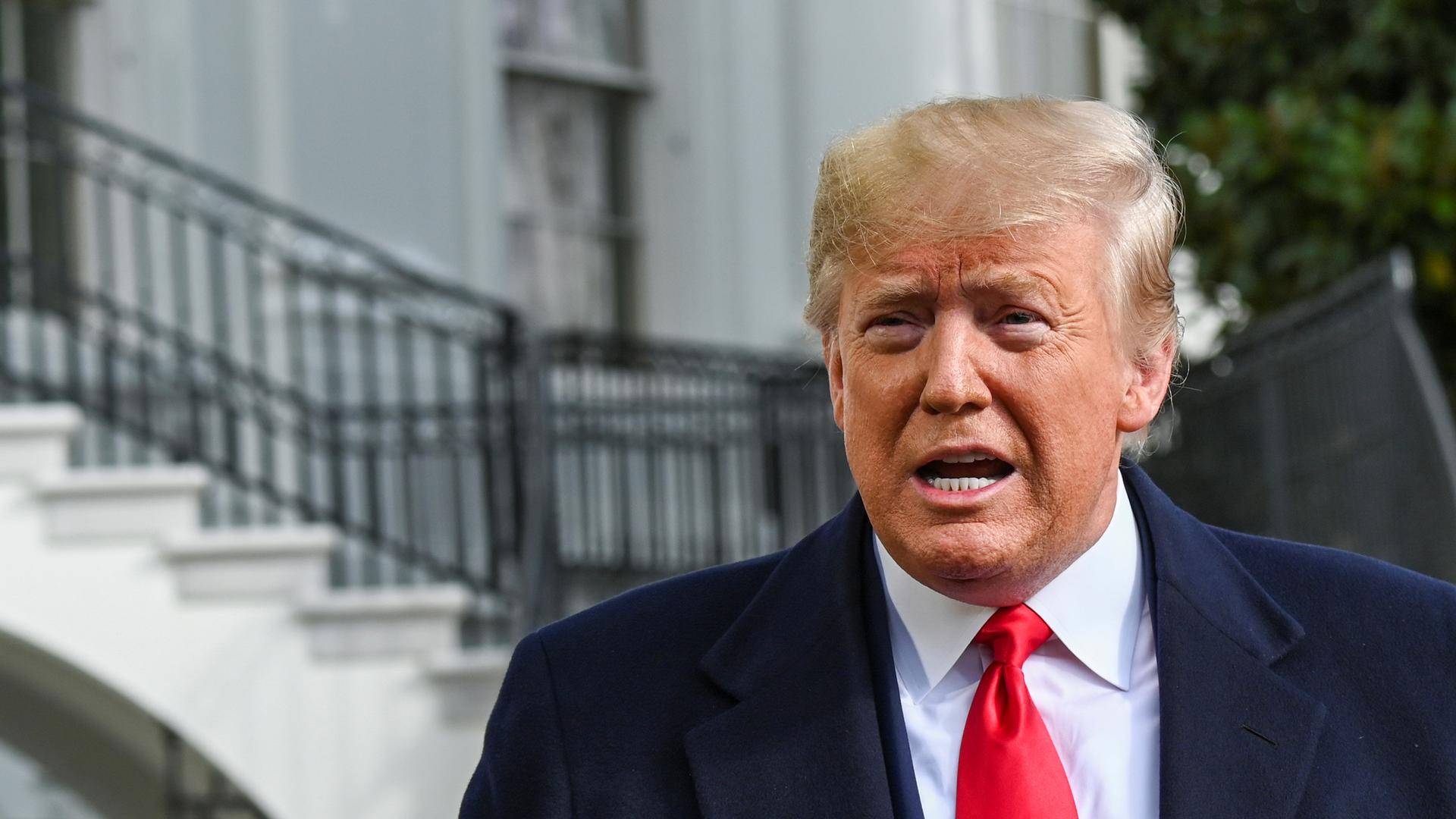White House says it will not participate in Wednesday’s impeachment hearing
President Donald Trump speaks to reporters from the South Lawn of the White House in Washington, US.
The White House responded defiantly to the first of two crucial deadlines President Donald Trump faces in Congress this week telling lawmakers on Sunday Trump’s lawyers would not participate in a congressional impeachment hearing scheduled for Wednesday.
House Democrats are preparing to shift the focus of their impeachment inquiry from fact-finding to the consideration of possible charges of misconduct over Trump’s dealings with Ukraine.
The House Judiciary Committee, tasked with considering charges known as articles of impeachment, had given Trump until 6 p.m. on Sunday to say whether he would dispatch a lawyer to take part in the judiciary panel’s proceedings.
“We cannot fairly be expected to participate in a hearing while the witnesses are yet to be named and while it remains unclear whether the Judiciary Committee will afford the President a fair process through additional hearings,” White House counsel Pat Cipollone wrote to Judiciary Committee Chairman Jerrold Nadler, according to a copy of a letter seen by Reuters.
Cipollone — while citing a “complete lack of due process and fundamental fairness afforded the president” in the impeachment process — did not rule out participation in further proceedings. But he signaled that Democrats would first have to make major procedural concessions.
Nadler has given the White House a Friday deadline to say whether Trump will mount a defense in broader impeachment proceedings.
The Judiciary Committee’s Democratic staff did not immediately reply to a request for comment on the White House’s refusal to participate in the hearing, which would have been the first direct involvement by the Trump camp in a process he has condemned as a partisan “witch hunt.”
Representative Don Beyer said on Twitter in response to the White House letter: “Not one process complaint made by the President and his Republican allies in Congress so far has turned out to be genuine.”
Congressional investigators have been looking into whether Trump abused his power by pressuring Ukraine to launch investigations of former Democratic Vice President Joe Biden, who is running to unseat him in the 2020 presidential election, and a discredited conspiracy theory that Ukraine, not Russia, interfered in the 2016 US presidential election.
Panel of legal experts
The first in a series of expected Judiciary proceedings will hear testimony on the impeachment process established under the US Constitution from a panel of legal experts that has yet to be named.
Hearings before the committee, which has responsibility for crafting any formal charges against Trump, are a major step toward possible charges. Democratic House Speaker Nancy Pelosi, who will make the final decision, has not yet said whether the Republican president should be impeached. But in a letter to supporters last week, she called for him to be held accountable for his actions.
Trump has denied any wrongdoing, calling the impeachment inquiry a sham.
Nadler also set a second deadline of 5 p.m. Friday for Trump to say whether he or his legal counsel would participate in further proceedings expected next week to examine evidence against him.
“We may consider participating in future Judiciary Committee proceedings if you afford the administration the ability to do so meaningfully,” Cipollone wrote, laying out a list of demands, including allowing Trump’s Republicans to call additional witnesses.
Cipollone also complained that Democrats had scheduled Wednesday’s hearing — “no doubt purposely” — to overlap with Trump’s absence from the United States to attend a NATO summit in London.
Three investigating panels, led by the House Intelligence Committee, are due to release a formal report this week when lawmakers return on Tuesday from a Thanksgiving recess. The report will outline evidence gathered by the Intelligence, Foreign Affairs and Oversight committees.
Members of the intelligence panel will review the report in a classified setting on Monday evening, and the full committee will consider and vote on it on Tuesday before forwarding it to the Judiciary Committee, according to an Intelligence Committee official and a person familiar with the matter.
The president and his Republican allies in Congress say the inquiry has been rushed and unfair to Trump by not allowing the White House to have legal counsel present or call witnesses during weeks of closed-door testimony and open hearings before the House Intelligence Committee.
Republican lawmakers were able to question witnesses during the closed hearings, however, and called three witnesses during public hearings that wrapped up last week.
The House Judiciary Committee could vote on whether to recommend articles of impeachment within the next two weeks, setting the stage for a possible impeachment vote by the full House before Christmas, according to Democratic aides.
If the House impeaches Trump, the Republican-controlled Senate would hold a trial to determine whether he should be removed from office.
By David Morgan and Matt Spetalnick/Reuters
Our coverage reaches millions each week, but only a small fraction of listeners contribute to sustain our program. We still need 224 more people to donate $100 or $10/monthly to unlock our $67,000 match. Will you help us get there today?
